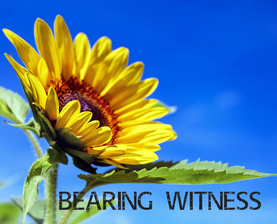
Like many Canadians, I imagine I just did not want it to be real and by not writing about it I could somehow make it less. I know better than this.
Then on Sunday evening we turned on the late night National news and heard about the three little boys in Northern Manitoba who on Saturday had been doing what millions of us have done before them; walking and biking along a neighbourhood road, when they were struck and killed by an impaired driver. How much can we take, I wondered. It is enough.
What can we do in times like this? One of the most helpful things I’ve seen Canadians do in these past weeks is to simply bear witness to these tragedies. Hundreds of thousands of Canadians have stood side by side, in Saskatchewan, in Ontario, in Manitoba and from coast to coast, simply acknowledging the deep loss that has occurred. This is bearing witness. While it seems to be far too passive an act to represent our deep sorrow and sense of loss, it is in fact one of the most helpful things we can do. Bearing witness means that we choose to stand along side those who need us, that we willingly listen to or acknowledge the stories that need to be told and that we show our support by acknowledging what has happened.
When we bear witness, we do not have to have witty things to say. We do not have to share our similar story. We do not have to know one single answer. We do not have to pretend that everything will be alright. We simply have to allow the other person to be seen. And to be heard. And to know that by being seen and heard, that what they are experiencing has worth to us. When we bear witness we are saying, ‘You are not alone. What you have experienced matters to me.’ By doing this, we lighten their load.
There is not much worse than going through a painfully challenging, or beautiful time other than to go through it without having anyone to bear witness to our experience. There is an aching loneliness that accompanies anyone who has no one to bear their witness.
The Zulu people of South Africa greet each other by saying, ‘Sawubona’ which means, ‘I see you.’
The response for this is ‘Ngikhona’, meaning ‘I am here’.
The order of this greeting is important. Simply put, it indicates that until we are seen, we seem not to matter. For each of the people affected by the recent events in Canada, the rest of us are left trying to let them know that we see them, that what they have experienced and are feeling matters and that we want to lighten their load. Over the past weeks, we have all watched news coverage of complete strangers going to the sites of the tragedy to do nothing more than bear witness. Sawubona, they seem to say. We see you.
I was wrong when I thought that writing about these tragedies strayed from my regular writing about tools we can use in our daily lives.
Bearing witness is a powerful tool. It is also a most welcome gift to receive.
As you travel through your week, notice people who may need you to bear witness. They may not live in Humboldt or Toronto or in Nelson House. They may serve you at a coffee shop, they may be stopped on a trail looking at scenery, they may be resting in a care-facility, they may be at your dinner table. Bear witness.
My inquiry for you this week is, ‘Who needs to hear me say, ‘Sawubona’?
Elizabeth is a life and leadership coach in Calgary, AB. She provides leadership coaching for individuals and groups and she creates and facilitates custom workshops for corporate, public and private groups.


 RSS Feed
RSS Feed